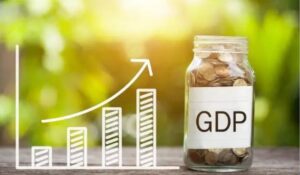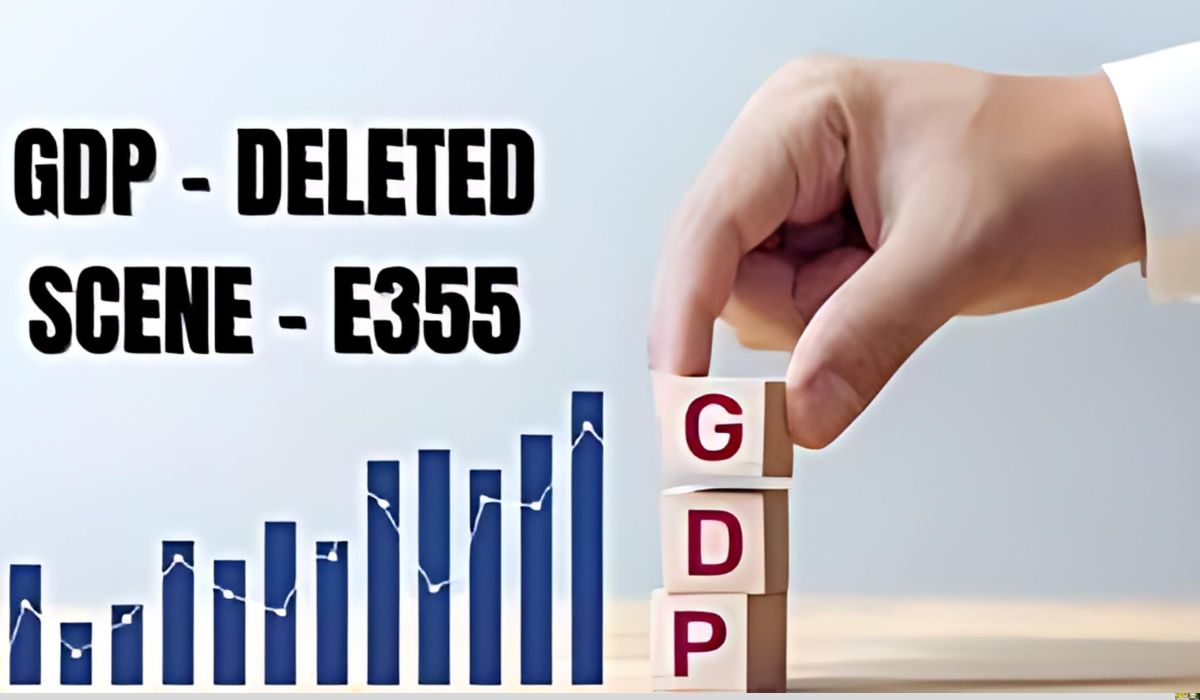Introduction
The term “GDP – Deleted Scene – E355” might seem enigmatic at first glance, blending economic terminology with an intriguing cinematic reference. In this article, we’ll unpack this phrase, delving into its components, their interconnections, and the most pertinent questions surrounding it. By the end, you’ll have a comprehensive understanding of this unique concept and its implications.
Understanding GDP
What is GDP?
Gross Domestic Product (GDP) is a standard measure of a country’s economic health and an indicator of its standard of living. It represents the total value of all goods and services produced over a specific time period within a nation’s borders. Economists and policymakers closely monitor GDP as it provides critical insights into the economic performance of a country.
How is GDP Calculated?
GDP can be calculated using three approaches:
- Production (or Output) Approach: This sums the value added at each stage of production.
- Income Approach: This totals the incomes generated by production, including wages and profits.
- Expenditure Approach: This sums the total expenditures on final goods and services produced within a country.
Why is GDP Important?
GDP is crucial because it provides a broad measure of economic activity. It helps in comparing the economic performance of different countries, informs government policy decisions, and influences investment strategies. A rising GDP indicates economic growth, while a declining GDP may signal economic trouble.
Deleted Scene
What is a Deleted Scene?
In the context of film and television, a deleted scene is a segment that was filmed but ultimately not included in the final cut of a movie or episode. These scenes may be removed for various reasons, such as pacing, length, or narrative coherence.
Why are Deleted Scenes Significant?
Deleted scenes offer a glimpse into the creative process and provide additional context or character development that didn’t make it to the screen. They can enhance the understanding of the story and offer fans extra content to enjoy. These scenes are often included in special editions, director’s cuts, or as bonus features on DVDs and streaming platforms.
E355
What is E355?
The designation “E355” could refer to various things depending on the context. In the realm of additives, E355 is an identifier for Adipic Acid, used as a food additive. However, without additional context, it’s challenging to pinpoint the exact reference of E355 in this phrase. It could also be a code related to a specific episode or a unique identifier in another domain.

Synthesizing the Concept: GDP – Deleted Scene – E355
Bringing together these elements, “GDP – Deleted Scene – E355” appears to blend economic analysis with a cinematic perspective, potentially suggesting an exploration of economic concepts (GDP) through the lens of content that is often hidden or overlooked (deleted scenes). The inclusion of E355 might hint at a specific case or example within this framework.
Possible Interpretations
- Economic Narratives Unseen: Just as deleted scenes offer unseen aspects of a film, there are facets of GDP and economic data that might not be immediately apparent. This could involve exploring less discussed economic indicators, policies, or historical events that have shaped current economic conditions.
- Educational Content: The phrase could be part of an educational series or content that explains complex economic concepts in an engaging, narrative style, akin to uncovering “deleted scenes” of history or policy decisions.
- Analytical Tool or Report: E355 might be a report, paper, or analytical tool that delves deep into the nuances of GDP, revealing insights that are typically overshadowed by the headline figures.
Related FAQs
What are the components of GDP?
GDP comprises four main components:
- Consumption: Spending by households on goods and services.
- Investment: Spending on capital goods that will be used for future production.
- Government Spending: Expenditure by the government on goods and services.
- Net Exports: Exports minus imports.
How do deleted scenes affect a movie’s narrative?
Deleted scenes can provide additional context, character development, or subplots that enrich the story. However, their removal is often necessary to maintain pacing, coherence, and audience engagement.
What is the significance of E355 in food additives?
E355, or Adipic Acid, is used as a flavoring agent and acidity regulator in food products. It’s significant in the food industry for its role in enhancing flavors and preserving the quality of food.
How does GDP affect individual citizens?
GDP growth typically leads to higher income levels, improved employment rates, and better public services, enhancing the overall quality of life for citizens. Conversely, a declining GDP can lead to economic hardships, including unemployment and reduced public spending.
Why do directors include deleted scenes in special editions?
Directors include deleted scenes in special editions to offer fans a more comprehensive view of their creative vision. These scenes can provide deeper insights into characters, plotlines, and the filmmaking process.
What other indicators complement GDP?
Other important economic indicators include:
- Unemployment Rate: Measures the percentage of the labor force that is unemployed.
- Inflation Rate: Measures the rate at which the general level of prices for goods and services is rising.
- Consumer Price Index (CPI): Measures changes in the price level of a market basket of consumer goods and services.
- Balance of Trade: The difference between a country’s imports and exports.
Conclusion
The phrase “GDP – Deleted Scene – E355” serves as an intriguing intersection of economics and cinematic storytelling. By understanding GDP and the significance of deleted scenes, we can appreciate the hidden narratives that shape our economic understanding and cultural experiences. Whether through educational content, analytical tools, or creative explorations, this concept invites us to look beyond the surface and uncover the deeper stories within our economic data and cultural artifacts.









